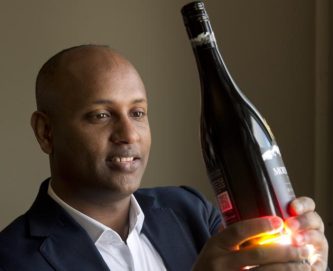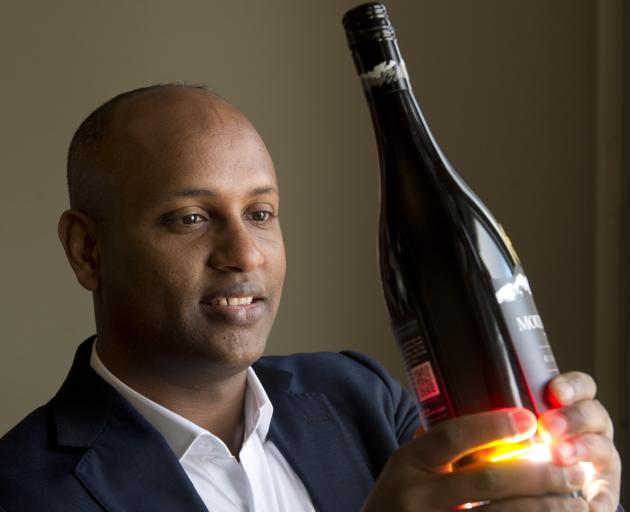john.lewis@odt.co.nz | 21 June 2024

As food fraud continues to grow around the world, Otago researchers have begun a ground-breaking project aimed at protecting the New Zealand wine industry from imposters.
University of Otago food science senior lecturer Dr Biniam Kebede is developing an artificial intelligence-powered hyperspectral imaging technique to test wine authenticity and traceability — all without opening the bottle.
The portable cutting-edge initiative aims to strengthen the industry’s integrity, combat fraud and ensure product safety.
There was a growing food fraud problem across all commodities, Dr Kebede said.
“That issue has also been increasing after Covid-19 because there is less control, supply chain disruptions — all those things.
“One of the most common forms of food fraud is geographical origin fraud, where a wine from one country could be claimed to be from another country.”
New Zealand wine was well known for its good quality and unique flavour, so consumers were willing to pay a higher price for it.
“Some people will take advantage of that, so we have to protect that.
“Geographical origin fraud can severely impact a brand’s reputation and market trust.”
One of the ways to check where a wine was from was to taste it or do a chemical analysis on it, he said.
It was a well-established method, but it meant opening the bottle.
“You can’t sell it once you’ve done that.
“So, we are trying to leverage advancements in imaging methods, like hyperspectral imaging.
“There are a number of imaging methods which you can use to analyse the contents without opening the bottle.
“You basically shine infrared light through the bottle, and it will give very complex imaging data, which is where artificial intelligence and deep learning will be used.”
The main part of the research was to create an imaging database of existing New Zealand wines, so it could be used to verify the authenticity of other wines claiming to be from New Zealand.
“We want to focus on protecting the integrity, the traceability and the origin of the product.
“The development of effective techniques for ensuring food integrity has broad national and global benefits.
“It strengthens the economy, enhances market reputation and boosts consumer confidence and premium pricing.”
Similar research had been used to verify the authenticity of coffees, Dr Kebede said.
The project was recently awarded $300,000 in Catalyst funding from the Ministry of Business, Innovation and Employment as part of the New Zealand-China Strategic Research Alliance.
The project brings together leading research institutes and industry stakeholders from the University of Otago, AgResearch, Oritain and China-based company Sinolight Technology Innovation Centre Ltd.
Central Otago: The New Zealand wine region with vineyards to rival Burgundy

Susy Atkins, Daily Telegraph UK | July 2024 The world’sRead more…
